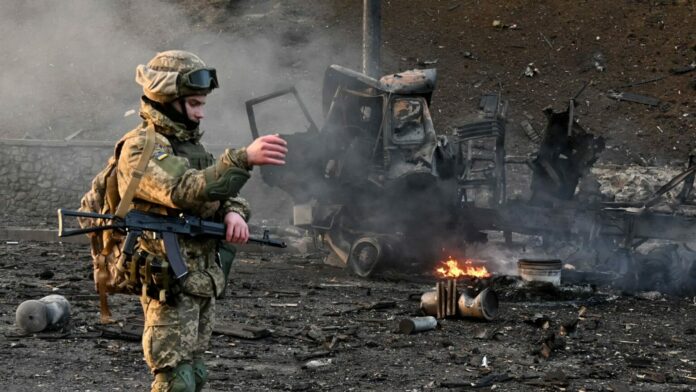Dr. Ammar Hamid Yassin/ Assistant Professor of International Relations at the College of Science and Political Science, University of Baghdad
Introduction:
The repercussions of the Russo-Ukrainian war are not determined in the geopolitical sphere of the two states; It affects many countries in the central and marginal areas of the structure of the world order in light of the increasing equation of escalation, whether by strengthening the Russian military momentum inside Ukraine; Or supplying the United States of America and NATO countries to Ukraine with weapons and military vehicles, and continuing threats of harsh response with economic sanctions on the part of European countries. Therefore, these developments raise some questions about their relationship to the shifts in the formulation of patterns of geopolitical power relations at the level of the international system, the factors of escalation of the crisis, and the positions of the active forces in it. Russia has moved the course of the conflict – in light of these developments – over Ukraine, a conflict that may redraw the map of the European continent once again, and upset the efforts of the United States of America; To achieve stability in its relationship with Russia, given Moscow’s increasing political and economic confidence to restore its leading role.
Conflict Map:
The map of the conflict between NATO and Russia shows that the Ukrainian arena will become an area of direct confrontation between them, especially in light of the Russian desire; To stall NATO’s expansion towards Russia’s vital geopolitical fields, which affected most of the Eastern European countries, especially after 1997. This is on the one hand, and the other, Europe is aware of the importance of economic intertwining with Russia, especially in the field of energy supplies; Europe imports about 40% of its gas needs from Russia. Therefore, Russian energy policies cast a shadow over Europe, which is trying to harmonize its needs with the economic needs of Ukraine; Because it is no longer the only transit route for Russian gas pipelines to Europe with Nord Stream (1-2) across the Baltic Sea directly to Germany.
and with US threats to Russia; However, many observers have seen that the real American position on the conflict is not to prevent the Russian invasion of Ukraine; For reasons related to the US administration’s desire to aggravate Russia, drain it financially, exacerbate its economic problems, and disrupt the entry of the Nord Stream 2 pipeline to transport gas to Germany; Because it will give Russia greater influence on the European continent, and perhaps achieve the American goal by announcing Germany to stop the procedures for licensing the Russian gas pipeline “Nord Stream 2”, and the imposition of many Western capitals sanctions against Moscow, especially Britain, Australia, Canada, and others.
The international conflict over Ukraine shows the intensity of the conflict between the hegemonic powers that wish to end the US unilateral hegemony and shift towards a non-polar system. Therefore, some see this crisis as a juncture in the existing international balance of power. In addition, the outbreak of open conflict may amount to a third world war that presents the world with catastrophic challenges; Especially in light of the equation of the military buildup, which brings back to memory the atmosphere of the Cold War. It is clear from the nature of these positions that the Ukrainian war and the Russian escalation against Ukraine are linked to a broad geopolitical struggle over areas of power, influence, and vital areas, fierce international trade competition over oil and gas, and international trade routes and lines between international strategic poles that go beyond Ukraine. As the conflict comes within the framework of the current international transformations and conflicts over areas of power and influence, the international position among the international powers affects international issues and affairs. The conflict between international powers remains one of the possible pillars for the interpretation of the Ukrainian crisis, even if the sparks affect regional and geopolitical problems; However, the international balance of power and the changes in the global system at present are the motives behind the strategic plans being hatched, whether by the United States of America to contain the Russian Federation or by Russia in terms of its desire to reshape the international system; to impose its dominance over its vital space.










